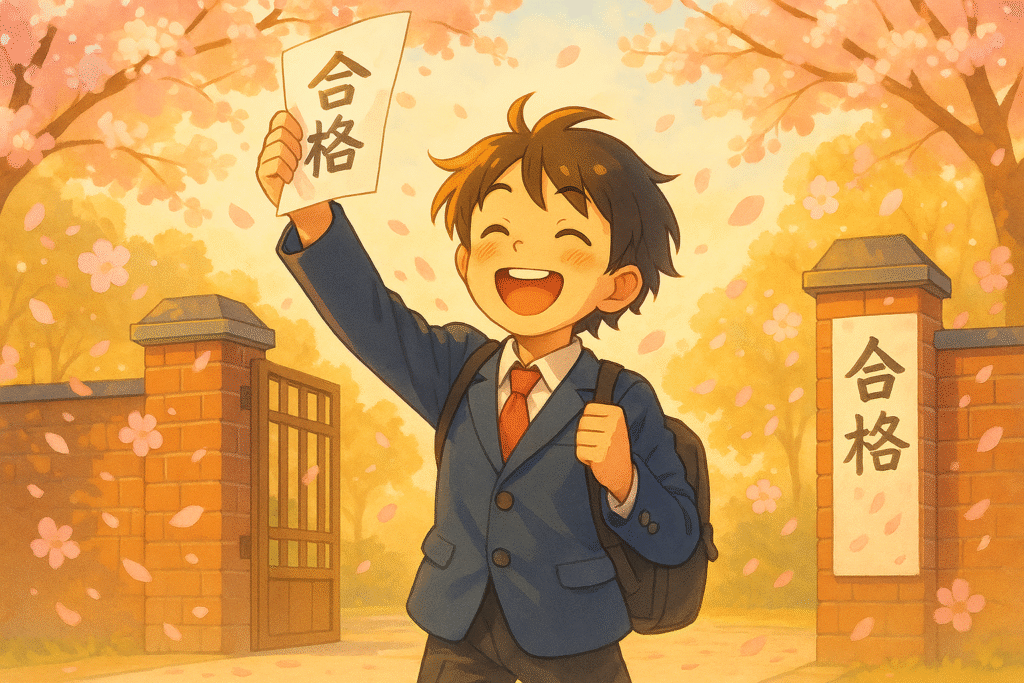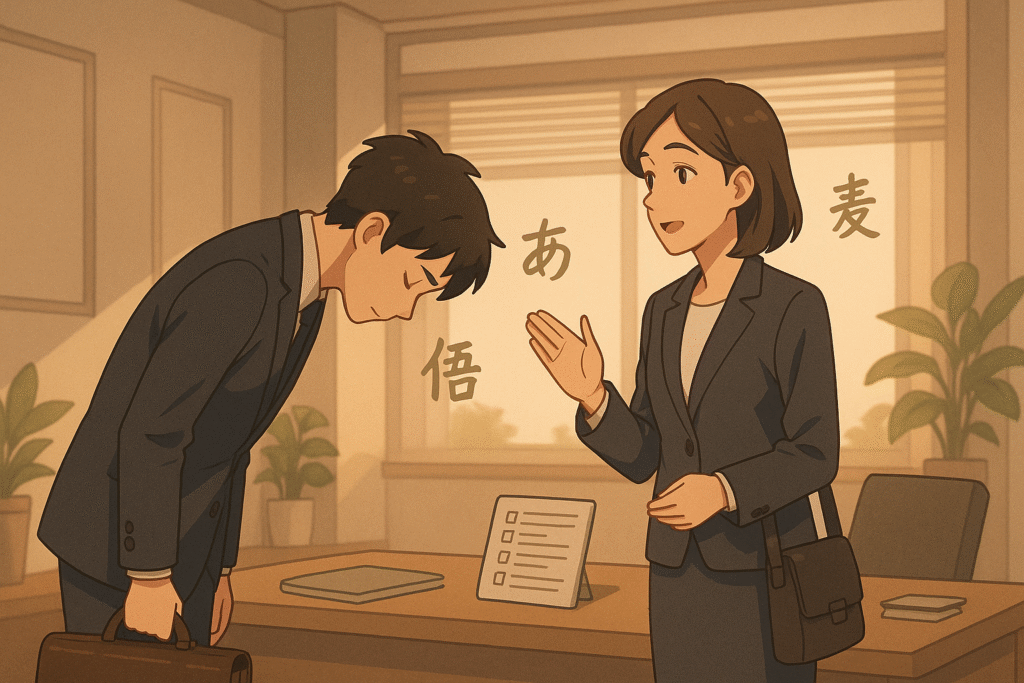Have you ever found yourself in a situation where you felt that burning sensation of embarrassment creep up your neck and onto your cheeks? That feeling exists in Japanese culture too, but with nuances that make it distinctly different from Western concepts. The Japanese term “hazukashii” (恥ずかしい) encompasses a unique emotional experience that reflects Japan’s deeply communal social fabric and concern for public perception.
What Does Hazukashii Mean in Japanese?
Hazukashii (恥ずかしい) is typically translated as “embarrassing” or “embarrassed” in English, but this translation misses crucial cultural subtleties. At its core, hazukashii meaning relates to a feeling of discomfort or awkwardness when one believes others might form a negative impression based on something you’ve done or something happening to you.
Unlike the English “embarrassing,” which often focuses on momentary social discomfort, hazukashii carries a stronger connection to social evaluation and conformity to Japanese behavioral norms.
Hazukashii in its simplest form means feeling uncomfortable because you think others might judge you negatively.
The Cultural Significance of Hazukashii
In Japanese society, where group harmony (和 – wa) and social awareness are paramount, the feeling of hazukashii serves an important function. It helps regulate behavior by making people conscious of how their actions might be perceived by others.
As we explored in our article on The Role of Okasan in Japanese Family Culture, the Japanese emphasis on social connection and proper conduct begins in childhood. This cultural conditioning makes hazukashii more than just embarrassment—it’s a reflection of one’s awareness of social expectations.
Key Aspects of Hazukashii:
- Social Consciousness: Concern about others’ perceptions
- Behavioral Regulation: Preventing actions that might draw negative attention
- Cultural Values: Tied to concepts of modesty, propriety, and group harmony
- Self-Awareness: Recognizing when one’s behavior might stand out inappropriately
Comparing Hazukashii and Haji: Two Related but Different Japanese Emotions
While exploring the hazukashii meaning, it’s important to distinguish it from another Japanese emotion term: haji (恥). Though both relate to uncomfortable social emotions, they differ significantly:
| Hazukashii (恥ずかしい) | Haji (恥) |
|---|---|
| More temporary feeling | Deeper, more lasting shame |
| Social awkwardness | Moral transgression |
| “This situation is embarrassing” | “I have done something shameful” |
| Often involves blushing | May involve desire to hide or disappear |
As we discussed in our guide on Mastering Japanese Adverbs, understanding these emotional nuances helps you express yourself more precisely in Japanese.
Common Situations That Are Hazukashii
The hazukashii meaning becomes clearer when we examine situations where Japanese people commonly use this expression:
1. Public Praise (過剰な褒め言葉)
Being singled out for excessive praise in front of others is typically hazukashii in Japanese culture. This reflects the cultural value of modesty and not standing out from the group.
Example: “皆の前でそんなに褒められて、恥ずかしいです。” Minna no mae de sonna ni homerarete, hazukashii desu. “Being praised so much in front of everyone is embarrassing.”
2. Showing Strong Emotions in Public (公共の場での感情表現)
Crying, showing anger, or expressing overly enthusiastic joy in public settings can be considered hazukashii.
Example: “バスの中で泣いてしまって、恥ずかしかった。” Basu no naka de naite shimatte, hazukashikatta. “I ended up crying on the bus, and it was embarrassing.”
3. Making Mistakes in Public (公共の場でのミス)
Tripping, spilling something, or making an error while others are watching is a classic hazukashii situation.
Example: “人前でつまずいて転んだのは本当に恥ずかしかった。” Hito mae de tsumazuite koronda no wa hontō ni hazukashikatta. “Tripping and falling in front of others was really embarrassing.”
Want to explore Japan’s culture?
Discover Japan’s rich culture, traditions, and hidden gems with our expertly crafted guides. Get insider tips on travel, food, and history. All for free!
4. Discussing Personal or Intimate Matters (個人的・親密な話題)
Conversations about romantic relationships, bodily functions, or personal problems can trigger hazukashii feelings.
How to Express Hazukashii in Japanese Conversation
Understanding the hazukashii meaning is one thing, but knowing how to express it in conversation is equally important:
- Casual expression: 恥ずかしい! (Hazukashii!)
- Polite form: 恥ずかしいです。(Hazukashii desu.)
- Past tense: 恥ずかしかった。(Hazukashikatta.)
- Very embarrassed: すごく恥ずかしい。(Sugoku hazukashii.)
As we’ve highlighted in Yaru vs Suru: What’s the Difference in Japanese?, mastering these nuanced expressions enhances your ability to communicate authentically in Japanese.
Hazukashii vs. English “Embarrassing”: Cultural Differences
The hazukashii meaning differs from English “embarrassment” in several key ways:
- Collective vs. Individual Focus: Hazukashii often concerns how one’s actions affect group harmony, while English embarrassment tends to be more individualistic.
- Preventative Function: In Japanese culture, hazukashii feelings often work to prevent behaviors that would draw attention, whereas Western embarrassment typically occurs after an awkward event.
- Connection to Honor: Hazukashii has stronger connections to concepts of honor and reputation than typical Western embarrassment.
- Positive Contexts: Some situations considered positive in Western cultures (like receiving compliments) can be hazukashii in Japanese culture.
Mastering Hazukashii in Your Japanese Learning Journey
If you’re serious about understanding Japanese culture and language, grasping the hazukashii meaning is essential. It offers a window into Japanese social dynamics and behavioral expectations.
For a deeper dive into Japanese emotional expressions and other essential language concepts, check out our free comprehensive guides at our Learn Japanese page. These resources will help you navigate the subtle cultural nuances that make Japanese such a fascinating language to learn.
Q&A About Hazukashii
What is the literal translation of hazukashii?
The literal translation of hazukashii is “embarrassing” or “embarrassed,” but its cultural meaning is much more nuanced, involving social awareness and concern about others’ perceptions.
Can hazukashii be positive?
While primarily describing uncomfortable feelings, hazukashii can sometimes have positive connotations when associated with modesty or humility, such as when receiving compliments or recognition.
How is hazukashii different from haji?
Hazukashii typically refers to temporary embarrassment or awkwardness in specific social situations, while haji indicates deeper shame related to moral transgressions or failures that affect one’s honor.
Why do Japanese people say something is hazukashii when complimented?
In Japanese culture, modesty is highly valued, and standing out from the group (even positively) can create discomfort. Saying something is hazukashii when complimented is a way to show humility and maintain group harmony.
How can I use hazukashii correctly in a sentence?
A simple way to use it is: “Sore wa hazukashii desu” (それは恥ずかしいです) meaning “That is embarrassing.” You can also use it to describe your feelings: “Hazukashii desu” (恥ずかしいです) to say “I feel embarrassed.”
Understanding the hazukashii meaning isn’t just about translating a word—it’s about appreciating the cultural values and social awareness that shape Japanese communication. By mastering this concept, you’ll gain deeper insights into Japanese society and enhance your language skills in meaningful ways.
Love Japan? Stay in the Loop!
Get the best of Japan straight to your inbox: language, culture & travel insights!




